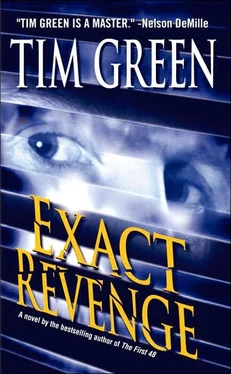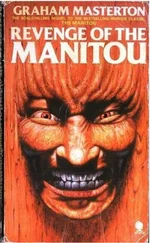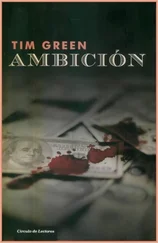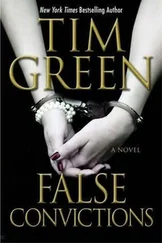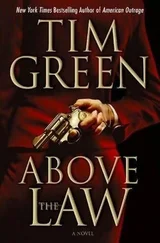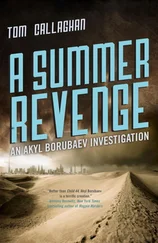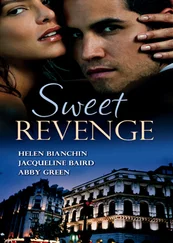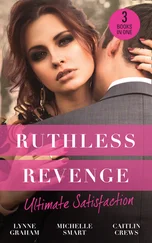Tim Green - Exact Revenge
Здесь есть возможность читать онлайн «Tim Green - Exact Revenge» весь текст электронной книги совершенно бесплатно (целиком полную версию без сокращений). В некоторых случаях можно слушать аудио, скачать через торрент в формате fb2 и присутствует краткое содержание. Жанр: Триллер, на английском языке. Описание произведения, (предисловие) а так же отзывы посетителей доступны на портале библиотеки ЛибКат.
- Название:Exact Revenge
- Автор:
- Жанр:
- Год:неизвестен
- ISBN:нет данных
- Рейтинг книги:4 / 5. Голосов: 1
-
Избранное:Добавить в избранное
- Отзывы:
-
Ваша оценка:
- 80
- 1
- 2
- 3
- 4
- 5
Exact Revenge: краткое содержание, описание и аннотация
Предлагаем к чтению аннотацию, описание, краткое содержание или предисловие (зависит от того, что написал сам автор книги «Exact Revenge»). Если вы не нашли необходимую информацию о книге — напишите в комментариях, мы постараемся отыскать её.
Exact Revenge — читать онлайн бесплатно полную книгу (весь текст) целиком
Ниже представлен текст книги, разбитый по страницам. Система сохранения места последней прочитанной страницы, позволяет с удобством читать онлайн бесплатно книгу «Exact Revenge», без необходимости каждый раз заново искать на чём Вы остановились. Поставьте закладку, и сможете в любой момент перейти на страницу, на которой закончили чтение.
Интервал:
Закладка:
The second man Lester killed in prison, he got with antifreeze. The Colombian he got with arsenic. For nearly two hundred years, the prison has stuffed rat poison down its holes. The sediment down in the basement is thick with it. Lester scraped the crust off his work clothes into a small plastic bottle, filled it with water, and spun it like a pinwheel on a string. A homemade centrifuge.
“How do you get it into their drink?” I ask.
“When I did the antifreeze, I was working the chow line,” he says, “but they won’t let me in there anymore. With the arsenic, I got a little eyedropper from the hospital, walked up to him, told him a funny joke, and squirted it right in his mouth.”
“What was the joke?” I ask.
“If you and your friends don’t leave me alone, I’m going to have to kill you.”
“Real funny.”
“To him it was.”
Every day, they give Lester a pill for his heart. He says there’s nothing wrong with him. It’s standard procedure in this country once you turn seventy to start taking heart medicine. When the hole in our cell is almost ready, he begins to break off small bits of his pills so he’ll have enough to get him through the first two weeks of our escape.
“After that,” he says, “I’ll be in New Zealand.”
We are lying in our bunks, waiting for the lockdown before we begin work. It is summertime and the air is hot and heavy, cooked over with the smell of human sweat, stale air, and fresh paint. My brow is beaded with sweat. I am wearing just my undershorts, and my arms are splayed out to my sides so my pits can dry.
Lester drones on about New Zealand. I am studying Fragonard’s eighteenth-century painting, a picture of happiness. The woman is happy, sailing up into the sunlight with her lover below. The lover is happy, he can see her wares beneath the ballooning petticoats. The husband is happy too, because he is ignorant of all this, an aging man with a fashionable and lovely young wife. I was ignorant too.
I am quiet after Lester finishes about New Zealand. He is waiting for me to reveal my own wistful plans. I know this because he’s mentioned it to me before, that if we get out we need to catch up on all the good things, put the past and all the bad things behind.
We hear the call of the guards up and down the block, and the lights go out. We are quiet for several minutes as the small bedtime noises of five hundred killers slowly wind down.
“We will escape,” Lester says, as if he were in the midst of a heated argument.
“I didn’t say we wouldn’t,” I say.
“Then why don’t you ever talk about your plans?” he asks.
“A wise man speaks because he has something to say,” I say, quoting Plato back at him, “a fool because he has to say something.”
“And if you were a fool? What would you say, kid?” he asks. “Are you afraid of what I’d think about your grand plan for revenge?”
“Who said that was my plan?”
“Aristotle said it is the mark of an educated mind to be able to entertain a thought without accepting it,” he says. “You’re an open book, kid, and even though I am against what you’re planning, I love you enough to tell you that if you’re going to succeed, you need to become more of a cipher than you are.”
“Meaning?”
Lester sighs.
“I had a son,” he says. “His name was Seth. Died when he was eight. It was the year I killed the prison guard. I don’t know, I think if he hadn’t died, I never would have tried a museum.”
“I thought you had a small van Gogh?” I ask. My blood rises. Even after all this time, I am afraid of being duped. There is still a small voice inside my head telling me Lester is a fake, a brilliantly colorful fake. That we will get out of this cell and there will be no manhole. No cistern.
He is laughing quietly at me, as if he knows what I’m thinking. He says, “I did. But everything I stole until Seth died was from private collections. The market for stolen masterpieces is every bit as lively and lucrative as the ones auctioned at Sotheby’s. Everything I stole was already stolen. Until Seth died… I guess I stopped caring.
“But,” he says, “my point is this. We would play chess, my kid and I. He was good. Exceptional, really. Had my noggin. Even more. But he was a kid, and so he’d always be looking at the pieces he wanted to move. I’d watch his eyes and know what move he was thinking about before he even did it. Like you, kid. I see it in your eyes. The hatred. The determination. Everyone else is gonna see it too.”
“I don’t care if they see it,” I say. I can feel heat in my veins. My voice is louder than it should be.
“Like Carl. He doesn’t care,” Lester says, and the image of that doughy mass murderer fills my mind. The ear-to-ear grin when he scoops up a spoonful of corn. The consternation over a plate full of olive-colored peas. An open book.
“You think I want to be here?”
“You’re safe here, kid, behind these walls,” Lester says. “Just like Carl. For instance, what are you going to do about her?”
The breath goes out of me.
“I… you…” I say.
“I read all about it,” he says. “The whole joint talked about it back then. But you were convicted and then that winter the space shuttle went down and then there was Colonel Ghadafi and Libya and people forgot about Raymond White.
“I did too, but I was interested in the players. To see how the tragedy played out. I saw in the newspaper when the girl married a cop and I watched him become a big shot in the casino world and move to New York City. Every once in a while you’ll see him standing behind the governor in some group shot. The DA, Villay, he’s a federal judge. Maybe on his way to the Supreme Court.
“Then there was the guy who got the congressional seat after you were arrested. Rangle. He’s out of politics now, but he made the most of it. He married one of those fancy society women and moves money around on Wall Street. I always found it… interesting how well all three of them did…
“The girl too, I suppose.”
“And why do you suppose that?”
“I just don’t know much about her,” Lester says. “They don’t write about her. Just him. He’s a little shady. Got caught up in a racketeering probe of some real estate development company. She’s still there, though. I saw a picture of her next to him in the New York Post when he got cleared.”
I realize that my hands are clenched around the folds of the bedsheet and my teeth clamped tight. I am breathing through my nose, practically snorting.
“Why didn’t you tell me this?” I ask.
“Next Tuesday is a new moon,” he says. “We’ll be leaving. I didn’t want you to dwell on it, but I don’t want you to do something stupid either.”
“Like walk up to him on the street and blow his fucking head off?”
“I’ve taught you almost everything I know, kid,” he says. “I’d hate to see all that go to waste. You could have a nice life for yourself. Isn’t it enough to be free?”
“No,” I say, “it’s not. You’re the one with the rule about exacting revenge.”
“That’s for in here,” he says.
“Not to me,” I say.
I get down from the bunk and hold out my hand for the drill bit. Lester gives it to me and I softly pound it into its block handle. I press the bit into the corroding plate next to last night’s hole. The toilet bowl is damp and cool against my cheek. I push and grind. Push and grind, letting the sharp steel edge bite into the plate, shaving out thin curly strips a micrometer at a time.
Soon, I hear the rattle of keys. The first walk-by always includes a night count. They do two a night. I climb into my bunk and close my eyes. I hear the footsteps of the guard. My eyelids glow briefly red as he swipes the beam of his flashlight over my face. In minutes, I hear him walking back down the company. Keys rattle again and the door hums and the latch clanks into place. I slip down off the bunk. Lester is asleep and I go back to work.
Читать дальшеИнтервал:
Закладка:
Похожие книги на «Exact Revenge»
Представляем Вашему вниманию похожие книги на «Exact Revenge» списком для выбора. Мы отобрали схожую по названию и смыслу литературу в надежде предоставить читателям больше вариантов отыскать новые, интересные, ещё непрочитанные произведения.
Обсуждение, отзывы о книге «Exact Revenge» и просто собственные мнения читателей. Оставьте ваши комментарии, напишите, что Вы думаете о произведении, его смысле или главных героях. Укажите что конкретно понравилось, а что нет, и почему Вы так считаете.
